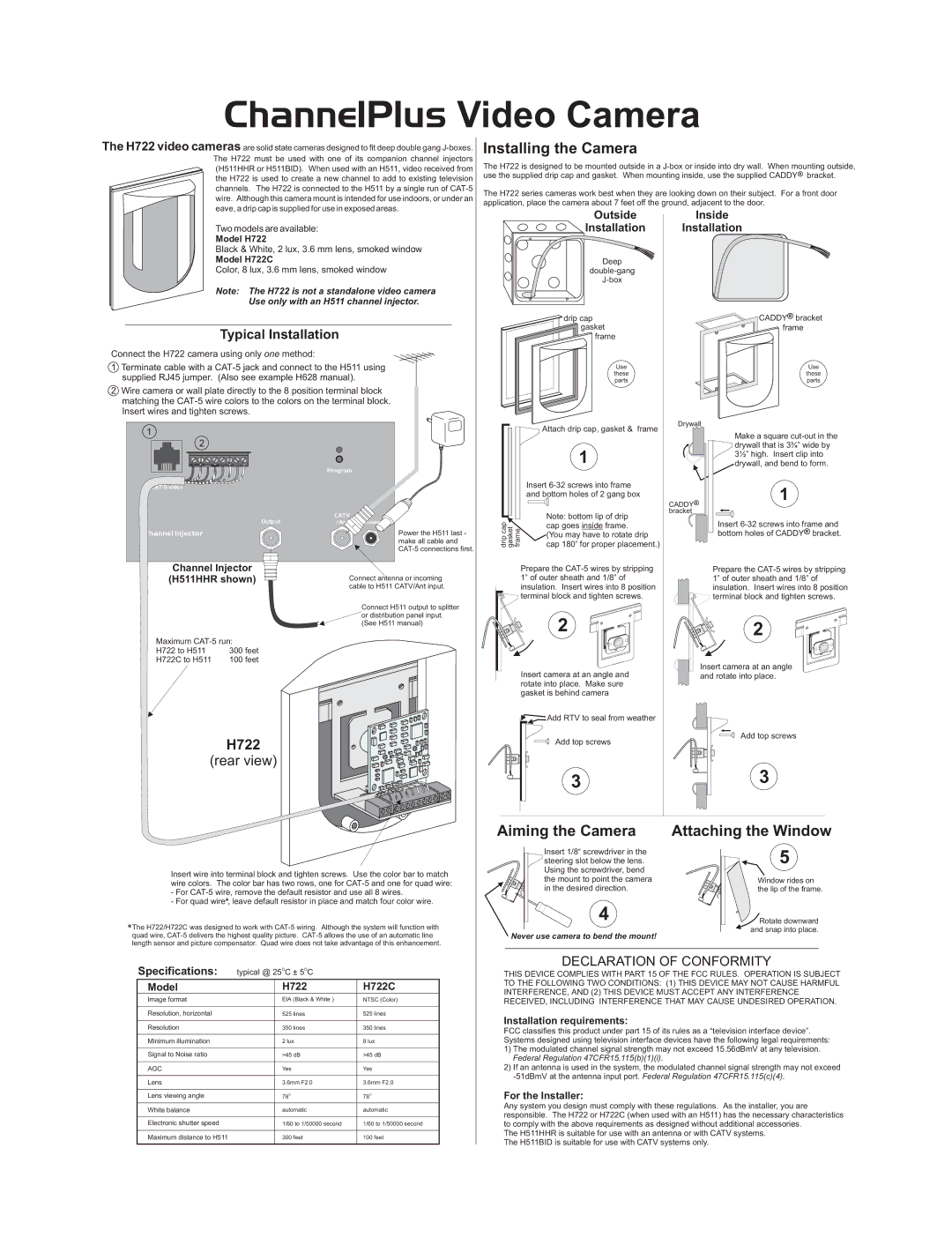H722C, H722 specifications
The Channel Plus H722C and H722 are venerated products in the realm of audio and video distribution systems, primarily distinguished for their exceptional performance in multi-room setups. These models exemplify the convergence of advanced technologies and user-friendly design, making them ideal solutions for both residential and commercial audio/video needs.One of the standout features of the H722C and H722 is their robust multi-channel distribution capability. With the ability to support up to eight independent channels, these devices enable users to supply music and video to multiple rooms within a home or business. The versatility allows for different sources to be accessed simultaneously in various zones, ensuring that everyone can enjoy their preferred media without conflicts.
Both models employ Class A/B amplification technology, which delivers high fidelity audio output. This ensures that the sound quality remains pristine, providing an immersive listening experience across all distributed channels. Additionally, the dynamic range of the audio output is impressive, capturing both the subtle nuances and impactful dynamics of various audio formats.
The Channel Plus H722C takes connectivity to the next level by incorporating an array of input options, including composite video, stereo audio, and RF connections. This level of connectivity makes it compatible with a multitude of sources such as digital tuners, DVD players, and streaming devices. The H722 also features built-in IR pass-through functionality, allowing for seamless control of source devices from any connected zone.
A significant aspect of these models is their ergonomic design, aimed at ease of installation and maintenance. The back panel is thoughtfully laid out, making wiring straightforward, which is a crucial consideration for installers. Indicator lights provide real-time feedback on system status, aiding in quick troubleshooting.
Another notable characteristic is their scalability. Users can expand their systems effortlessly, adding more zones or channels as needed, which allows for future-proofing in evolving audio and video environments.
In conclusion, the Channel Plus H722C and H722 are engineered to exceed expectations in multi-room audio and video distribution. With their superior sound quality, versatile connectivity options, and user-centric design, they stand out as leading choices for enhancing the media experience in any setting.

